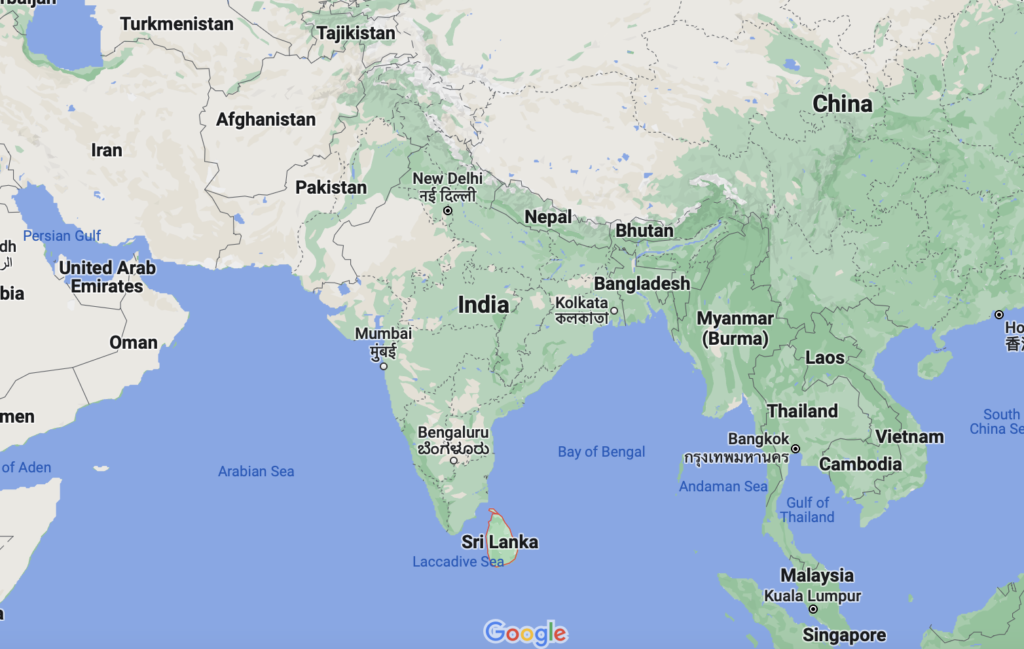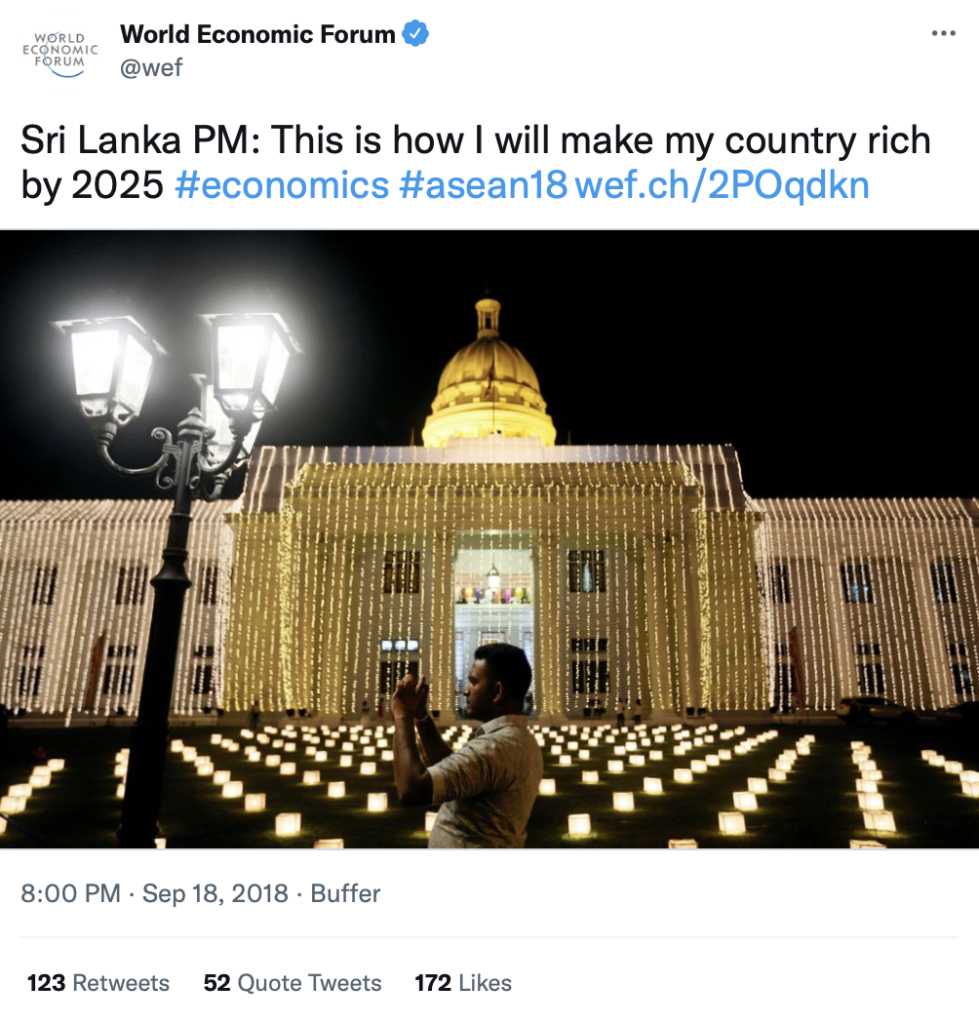Recap: WEF Great Reset Destroy Sri Lanka
Lately, Twitter feeds have been buzzing with news surrounding the Sri Lanka uprising. This article will break down a few key points:
- Sri Lanka’s location, and link to the World Economic Forum
- What has been happening in the country
- Why it matters
To begin, Sri Lanka is an island nation in Asia, located just south of India.

Sri Lanka’s economy has been in collapse for months, its people experiencing food, electricity, and fuel shortages; difficulties that a large amount of the country never before worried about.
In an interview with AP News, a senior researcher at the Centre for Policy Alternatives in Sri Lanka’s capital city of Colombo, Bhavani Fonseka said, “The crisis has really shocked the middle class — it has forced them into hardships they were never exposed to before, like getting basic items, not knowing whether they could get fuel despite spending hours in line.”
This economic devastation can be directly linked to the World Economic Forum, through ideology and partnership with Sri Lanka’s leaders.
In 2018, Ranil Wickremesinghe, the Prime Minster of Sri Lanka, wrote an article for the World Economic Forum’s website titled “PM: This is how I will make my country rich by 2025.” The article has recently been deleted.
Conveniently, other websites at the time archived the article, such as Sunday Times. Here, Ranil Wickremesinghe wrote:
“Our economic policy, Vision 2025, is firmly embedded in several principles, including a social market economy that delivers economic dividends to all…
Sri Lanka’s education system is being transformed through progressive and important policy reform…”
The implications of a “social market economy” and “economic dividends” cannot be understated. It is written using terms that make the reader think are benign, but are actually extremely radical policies.
Regarding social market economies, the University of Oxford writes, “the notion seeks a middle path between socialism and capitalism.” The economic strategy aims to implement social equality and justice though political means. The “economic dividends” are another red flag, it warns of a government-controlled economy in which individual profits are solely determined by the country’s leaders.
Just last year, Sri Lanka banned modern fertilizer in exchange for “organic” alternatives that are significantly less effective, and have been a contributing factor leading to food shortages.
The people of Sri Lanka have been suffering under these new “green” and globalist policies, and eventually decided that they have had enough.
The people of Sri Lanka began protesting, and have stormed the capital, leader’s residencies, and official government buildings. Some protesters have unfortunately resorted to violence, some even set fire to the Prime Minister’s home.
The outrage over a mismanaged economy, food shortages, and poor leadership caused the prime minister and the president of Sri Lanka to resign.
To address why this matters, and what implications it has for the United States:
There are those in the US who are pushing for the very same policies that just destroyed Sri Lanka’s economy. The World Economic Forum has been dubbed a conspiracy theory, and conservatives are told to take the rehearsed liberal narrative as truth instead of believing their own eyes.
Companies based in the US are encouraged to implement ESG (environmental, social, and governance) scores, to test their willingness to comply with the globalist and green agenda.
The unfolding chaos and devastation in Sri Lanka should be a warning to Americans, if we follow down the same path it’s clear we will supper the same fate.
For consistent deep dives on complex topics like this, be sure to tune into Human Events Daily, where I break down current events in just 25 minutes and provide easy-to-digest information.





Nessun commento:
Posta un commento